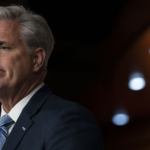
UAE: The number of pharmaceutical manufacturing plants in the UAE is expected to more than double in the next five years to 34 from 16 currently as part of economic diversification efforts, a leading official said yesterday.
Amin Al Amiri, the assistant undersecretary of Public Health Policy and Licensing at the Ministry of Health, said he expects three deals this year between international drug companies and domestic makers for manufacturing medicines in the UAE.
He was talking on the sidelines of the two-day Pharma in the GCC conference in Dubai.
In 2014, Dubai-based Globalpharma joined Sanofi in a partnership to produce some of its generic medicines in the UAE. In the same year, Abu Dhabi’s Neopharma entered a deal with Pfizer’s Wyeth to make medicines for pain management, cardiovascular diseases and women’s health. Julphar opened its 12th factory in the UAE at Jebel Ali in November 2013.
Despite the low oil prices and reduced government spending in the region, the UAE’s health budget is expected to remain steady for the next few years, with the research company BMI forecasting it would actually increase.
In 2019, the total healthcare expenditure in the UAE is expected to touch Dh70.67 billion, an annual growth rate of 7.9 per cent, from Dh53.8bn last year.
Of that amount, expenditure on pharma products is expected to be Dh13.97bn in 2019, up from Dh10.32bn last year, an 8.1 per cent growth rate per year.
The overall healthcare expenditure is expected to be 3.87 per cent of the GDP, up from 3.3 per cent in 2014.
“Healthcare expenditure would increase even if the oil prices come down because we are depending upon many other things beyond oil,” Mr Al Amiri said. “For sure, we will be in safe hands,” he said, referring to possible continued low prices of oil beyond this year.
Despite the focus on private sector increasingly providing more healthcare services, Mr Al Amiri expects the role of government to get stronger.
“We will be concentrating on regulation, audits, compliance and controls,” he said. “It’s not that the prices would come down, the prices should be as per the performance and outcome.”
On the private sector investment side, the focus is expected to be on specialised hospitals and day surgery centres.
The ministry will focus on tackling non-communicable diseases and changing lifestyles to bring down the incidence of diabetes and obesity. That will reduce the financial burden on the government in the long run, Mr Al Amiri said.
Source: The National
















